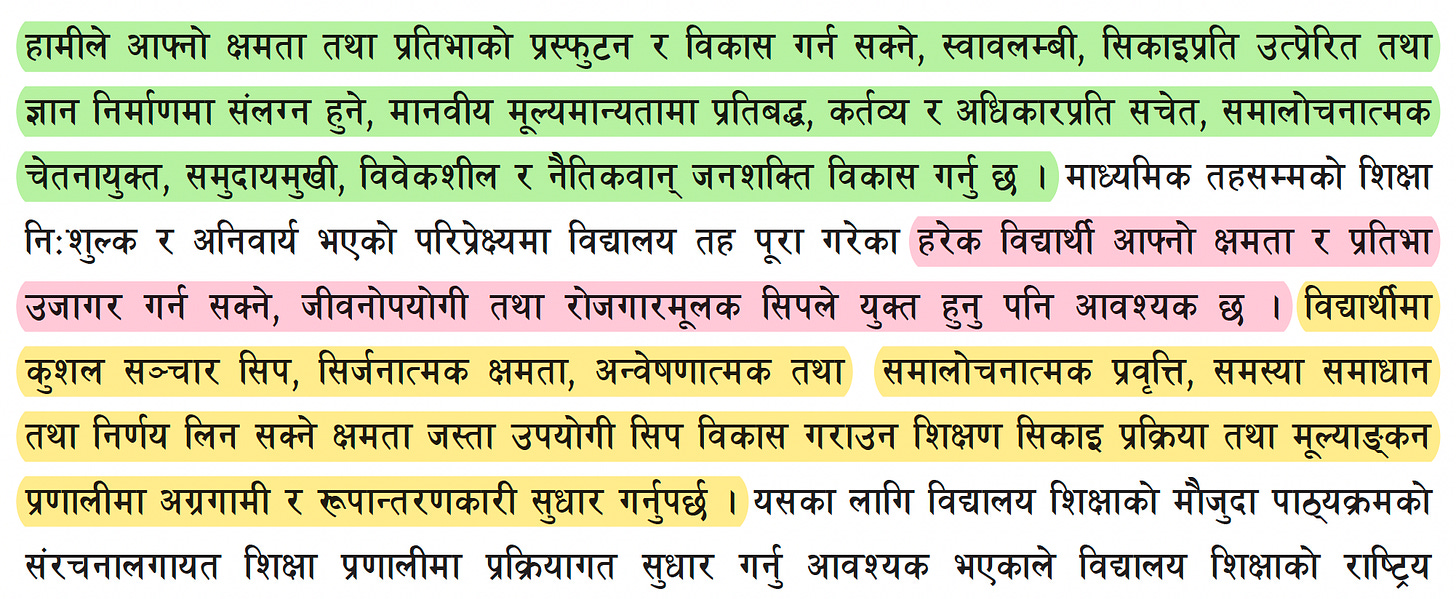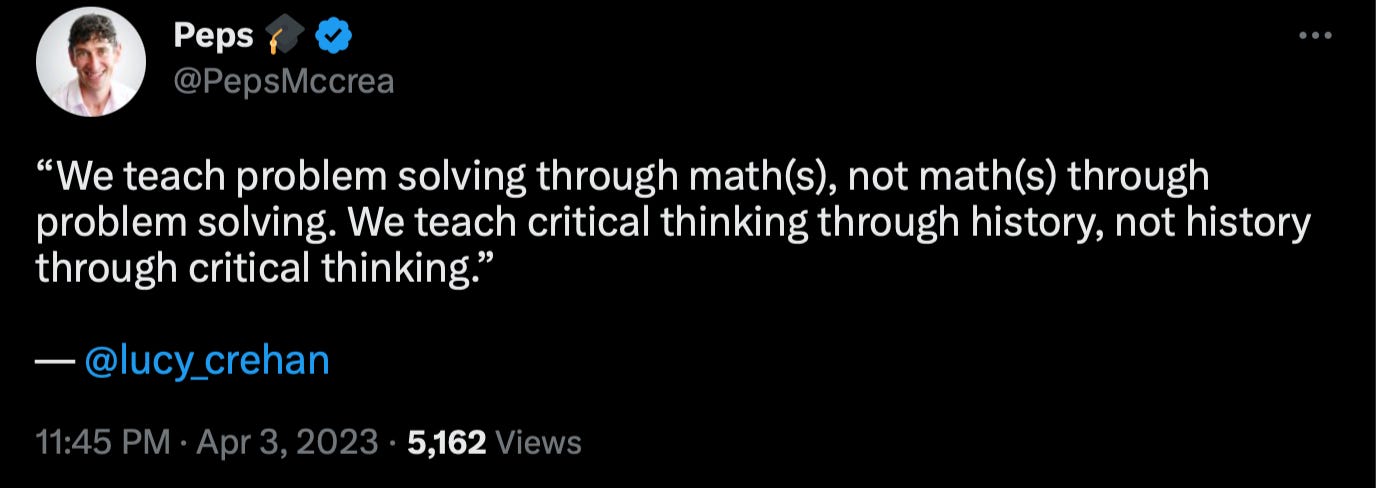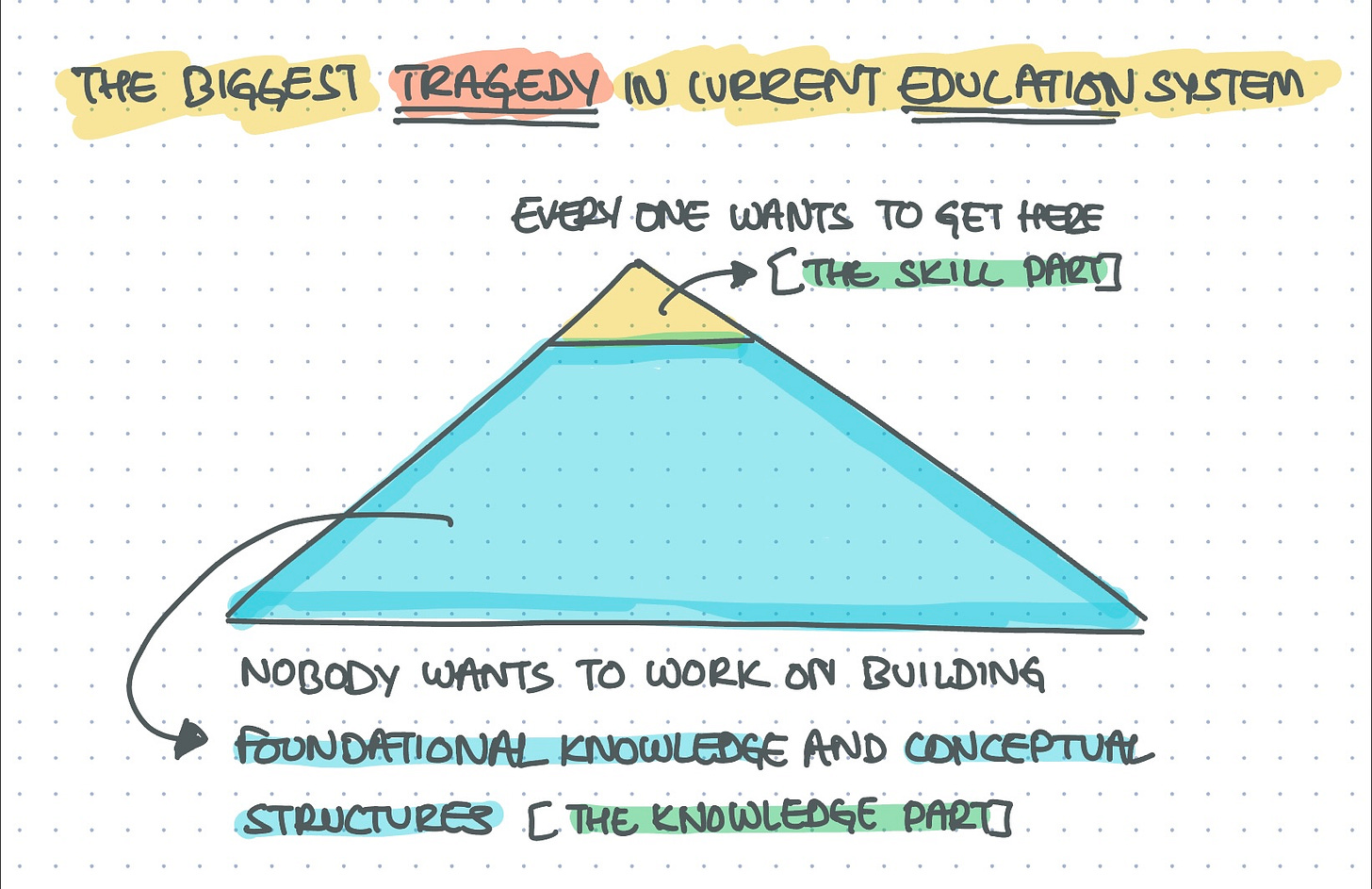A Simple Deep Message to Teachers
Teach to build the foundational knowledge and conceptual structures.
21st Century Learning Skills Sell Like Hot Cakes
The topic of the 21st Century Learning SKILLS is the current obsession in education. Especially, the 4Cs: communication, critical thinking, creativity, collaboration.
Parents. Educators. Curriculum designers. Professors. Media. Industry experts. Tedtalk speakers. Everyone talks about it.

In addition, you can also hear this narrative almost every where almost every day - that schools should focus on teaching real life skills, not the content.1
And, with that narrative, comes a group of people who like to bash on teachers, schools and education system. Educational commentators, like Sir Ken Robinson, even went ahead and blamed schools for killing creativity. (FYI, Robinson never taught in any school. Ever.)
Yes, We DO Need the 4Cs:
Of course, at the end of the day, we all need skills to communicate effectively, to think critically, to solve problems, to express creatively and to collaborate with each other.2
I admit these skills are super important. No one can deny that. And I am not denying that schools and education system are devoid of their own problems.3
However, the BIG issue is: how learning actually happens.
Students can not learn any of these skills in isolation, these have to be wrapped up around content and context.
Think about it. Ask students to think like a scientist when they do not have appropriate level of background knowledge about science. All they will come up will be superficial details.
Reality is, we can not think about things which are not already embedded inside our memory system. Isn’t that interesting?
I will repeat this 1000 times if I have to.
Without having a deep and stable structure of knowledge within a domain/subject, students can not simply master the 21st Century Learning Skills.
The aim of teaching, therefore, is to first:
a. Help students build structure, logic, and schema within the context of a domain (maths, language, science, history, etc)
b. Make them repeat, practice, implement, and refine their knowledge structures in the familiar settings of the classroom
c. Assess them continuously, and repeat the process.
There’s no short-cuts. There’s no way around it. There’s no skipping the knowledge building part.
Then as a result of this entire process, hopefully, the students will be able to gain the 21st Century Learning Skills within a certain domain of knowledge.
I am saying ‘hopefully’ because despite the learning process, learning and transfer of learner is quite unpredictable.
So.
Here’s my simple deep message to all teachers:
Teach to build the foundational knowledge and conceptual structures of a subject first.
Then, make students think harder.
Thanks for reading. Spread this message. Share this post.
Because, the logic is: you can easily find any content in the internet/google.
On this twitter thread, Peps Mccrea talks about the persisting confusion in education, the idea of Means-Ends Conflation.
Problems like constructive alignment, the whole logic and implementation of curriculum and assessment process.



